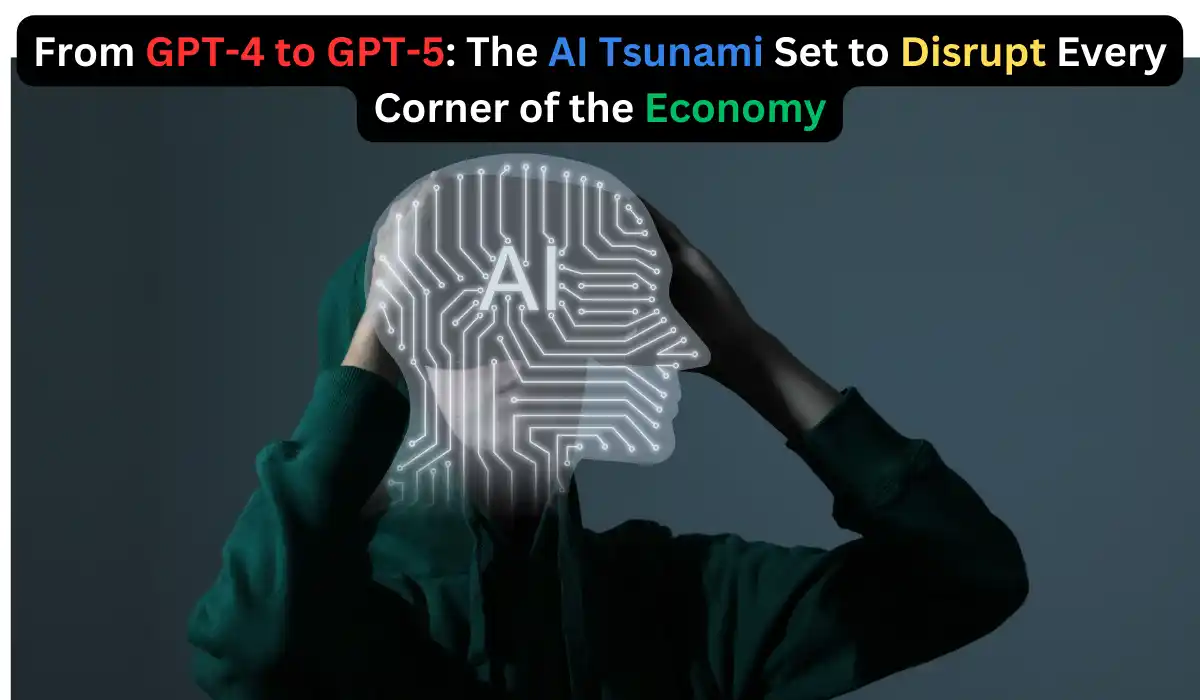Unleashing GPT-5: The Next Frontier in AI Evolution
In the fast-paced realm of artificial intelligence, the unveiling of OpenAI’s GPT-4 marked a transformative leap, leaving its predecessor, GPT-3, in the dust. Now, as whispers circulate within the tech community, the anticipation for GPT-5 is reaching a fever pitch, poised to make 2024 the year of groundbreaking AI advancements.
The Evolutionary Leap: GPT-4 vs. GPT-5
GPT-4, hailed as the Mercedes to GPT-3’s Fiat Punto, ushered in a new era of capabilities. OpenAI proudly declared it to be ten times more advanced, boasting not only textual comprehension but also the ability to interpret images and even pass legal exams. However, the curtain is about to rise on GPT-5, the AI event of 2024, promising a system so powerful that it leaves its predecessors in the shadows.
Scaling Up: From GPT-1 to GPT-5
The journey from GPT-1 to GPT-5 is a testament to the exponential growth in AI capabilities. GPT-1, born in 2018, trained on 117 million parameters, while GPT-3 skyrocketed to 175 billion. GPT-4 pushed the envelope even further with a staggering 1.7 trillion parameters. The computing might required also ballooned, with GPT-4 demanding 16,000 high-end Nvidia A100 chips compared to the 1,024 for GPT-3.
Multimodal Marvels: GPT-5’s Potential
As tech enthusiasts speculate about GPT-5, the term “multimodal” emerges as a buzzword. Nathan Benaich, a prominent figure in AI investment, predicts that the next generation will transcend text comprehension, expanding into images, videos, and audio. This, he asserts, is a giant leap towards these models truly understanding the world around them.
Demis Hassabis, the head of Google’s Deepmind lab, adds a tantalizing possibility to the mix—sensations like touch. If realized, this could mean AI systems embedded in robots capable of tactile understanding, a prospect that could reshape industries relying on automation.
Beyond Comprehension: Reasoning and Planning
Matt Clifford, a tech entrepreneur with insights into AI safety, forecasts that the next wave of models might exhibit qualities akin to human intelligence, such as reasoning and planning. The ability to seamlessly switch between tasks could pave the way for autonomous agents, systems capable of performing tasks on behalf of individuals, from booking holidays to managing emails.
Implications for the Job Landscape
While current AI systems have encroached on professions like copywriting and design, the introduction of task-executing bots could usher in a new era of job displacement. AI that not only generates content but also translates it into action, such as a customer service bot booking flights, poses a more imminent threat to traditional employment models.
Government Scrutiny: Navigating the Uncharted Waters
With the emergence of increasingly powerful AI systems, the need for regulation becomes paramount. Nine major companies, including Amazon, Google, and Microsoft, have committed to having their systems tested by governmental AI safety institutes. As the models become more intricate, governments globally are recognizing the necessity of scrutinizing these technologies before they hit the market.
Uncertain Horizons: Skepticism and Optimism
As we peer into the future of AI, skepticism contends with optimism. Some argue that the golden age of AI breakthroughs may be waning, with improvements becoming marginal regardless of the computational power deployed. However, the unknown capabilities of upcoming models keep the industry on its toes.
AI and Elections: A Flashpoint in 2024
As the world gears up for elections in 2024, the potential impact of AI on electoral processes cannot be ignored. The ability to create convincing deepfakes, as witnessed in various countries, raises concerns about their use in influencing political narratives. With over two billion people expected to vote globally, the intersection of AI and elections is poised to be a focal point in the coming year.
The Regulatory Landscape: A Closer Look
Recognizing the potential risks, governments are stepping up regulatory efforts. Companies like Amazon, Google, and Meta have volunteered their AI models for scrutiny, showcasing a proactive approach to ensuring the responsible development of advanced technologies.
The Road Ahead: Embracing the AI Revolution
As AI captures the popular imagination in 2023, the true impact is projected to unfold in 2024. Whether GPT-5 lives up to the hype or takes a different trajectory remains uncertain. However, one thing is clear—AI, in its various forms, will become an integral part of our daily lives.



